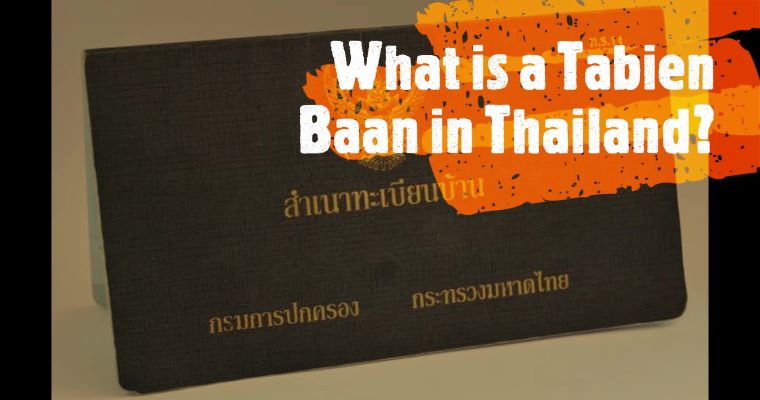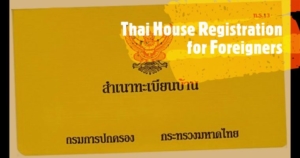The Tabien Baan in Thailand, often referred to as the House Registration Book, is an important legal document in Thailand. While it is not proof of property ownership, it plays a central role in linking individuals to an address for official purposes. For foreign buyers, understanding the difference between the types of Tabien Baan and how they fit into the property process is essential.
What Is a Tabien Baan?
In Thailand, every residential property is assigned a Tabien Baan (house registration book). This book records the names of individuals who legally reside at that address. It does not indicate who owns the property, but rather who is registered as living there.
There are two main types:
-
Blue Tabien Baan – Issued primarily to Thai nationals who own or legally reside in a property.
-
Yellow Tabien Baan – Issued to foreign nationals who legally reside in a property, usually when holding a long-term visa and with appropriate supporting documents.
Note: Every condominium unit is also issued a blue Tabien Baan, even if the owner is a foreign national. In that case, the foreign owner is not listed inside, but the book is still required for administrative purposes, particularly when selling the unit.
Why Does It Matter?
Although it is not proof of ownership, the Tabien Baan is important for several reasons:
-
Legal procedures – It is often required for property transfers at the Land Office.
-
Utilities & services – Some government services, such as registering for utilities, may request it.
-
Visa & administration – A yellow Tabien Baan can be helpful in supporting visa applications, driving licence applications, or opening certain bank accounts.
-
Resale process – When a property is sold, the Tabien Baan helps ensure smooth transfer and record updates.
How Foreigners Can Obtain a Yellow Tabien Baan
Foreign nationals may apply for a Yellow Tabien Baan if they are legally residing in Thailand. While exact requirements can vary depending on the local district (Amphur), the typical documents requested include:
-
Valid passport with current visa
-
Proof of residence (lease agreement, ownership documents, or similar)
-
Marriage certificate (if married to a Thai national)
-
Completed application form from the local Amphur office
The Amphur has discretion over approval, so the process may differ slightly between locations.
Limitations of the Tabien Baan
It is important to understand what a Tabien Baan is not:
-
It is not a title deed and does not prove ownership of the property.
-
It cannot be used to sell or transfer property rights.
-
It does not grant additional rights to foreign nationals beyond proof of residence.
Do Condo Owners in Phuket Need a Thai House Book?
Yes. Even though foreign condo owners do not appear in the blue Tabien Baan, every condominium unit in Phuket is issued a blue house book tied to its address.
When selling a condo, the blue book must be presented at the Land Office. Without it, the resale process can be delayed or complicated.
Most lawyers or agents will keep a copy for safekeeping, but owners should always know where the original is stored.
Summary
The Tabien Baan is a useful administrative document in Thailand, linking individuals to an address. For foreigners, the yellow version can make many everyday procedures easier, but it does not grant ownership rights. Understanding its purpose helps buyers and residents navigate the legal landscape more confidently.
Related Guides
Disclaimer: The information contained in this article is provided for general informational purposes only and does not constitute legal, financial, or investment advice. While every effort has been made to ensure accuracy at the time of publication, property laws and regulations in Thailand are subject to change. Readers should always seek independent legal advice from a qualified Thai lawyer before making any property-related decision or transaction.



Social Contact